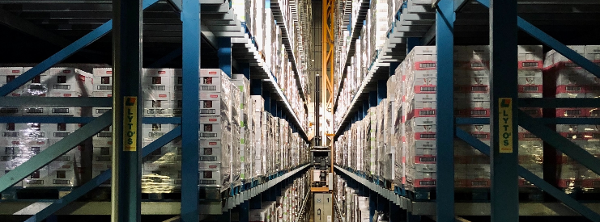
 Logical Training and Skills Office Network: Nurturing Talent for Over 30 Years
Logical Training and Skills Office Network: Nurturing Talent for Over 30 Years
In the dynamic world of logistics, where the movement of goods is the lifeblood of the global economy, training and development play a crucial role in shaping the future workforce. Logical Training, an independent training provider under the Skills Office Network umbrella, has been at the forefront of this mission for over three decades. With a dedicated team and a passion for delivering inspirational apprenticeships, Logical Training is committed to supporting high performance and developing the capabilities of individuals entering the logistics industry.
One of the key qualifications offered by Logical Training is the Level 3 International Freight Forwarding Specialist course. Alison Green, a prominent figure at Logical Training, sheds light on the organisation’s commitment to excellence and the pivotal role played by Skills for Logistics in shaping their training programs.
Why Skills for Logistics?
Logical Training’s choice of Skills for Logistics as a partner stems from a shared commitment to addressing the gaps in freight management training. As the largest sector specialist, Skills for Logistics aligns seamlessly with Logical Training’s values, providing solutions to business challenges and enhancing the learning experience for apprentices.
Highlights of the Partnership
Working closely with Skills for Logistics, Logical Training has experienced several highlights, particularly in the review of the International Freight Forwarding Specialist qualification. The collaboration has extended to the development of practice materials provided by Skills for Logistics, showcasing the partnership’s commitment to staying current and relevant in a rapidly evolving industry.
Navigating challenges in Freight
Emphasising the importance of partnership to overcome challenges, Alison states, “The freight forwarding sector has undergone significant changes, especially post-Brexit, with shifts in processes, regulations, and policies. This emphasises the need for upskilling and acquiring new knowledge to navigate these changes successfully. Skills for Logistics has played a crucial role in overcoming challenges, and there is a collective effort to attract young talent to the sector by raising awareness in schools and communities”.
Advice for Aspiring Professionals
For those considering a qualification or apprenticeship, Alison encourages a proactive approach, saying, “anyone considering a qualification or apprenticeship should embrace learning and see challenges as an opportunity. There are limitless rewards that come from gaining a qualification, acquiring hands-on experience, and developing valuable skills that open doors to progression opportunities”.
Learner Spotlight: Hollie Coxon’s Journey in International Freight Forwarding
Hollie Coxon, a student enrolled in the Level 3 International Freight Forwarding Specialist course, shares her passion for the logistics industry. Intrigued by the movement of goods and excited by the challenge of solving problems in a fast-paced environment, Hollie chose a career in freight forwarding to contribute to the world of international trade.
Despite facing challenges as a newcomer to international trade, Hollie highlights the invaluable support from Logical Training’s team. Her proudest moment was achieving a merit in the BIFA course on Customs Export and Import procedures, demonstrating her dedication to learning and growing in the industry.
Impact on the Future
Hollie believes that achieving her Level 3 Freight Forwarding certificate from Skills for Logistics is a significant milestone that will positively impact her future in the industry. The certification not only showcases her dedication to professional growth but also positions her as a skilled and competitive professional in the logistics and transport sector.
In conclusion, the partnership between Logical Training and Skills for Logistics exemplifies a commitment to excellence in training and development within the logistics industry. Through collaborative efforts, these organisations are not only preparing the workforce for the challenges of today but also shaping the future leaders of the global logistics landscape.
